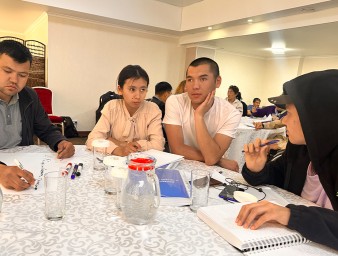Australia: the rights of two deaf citizens violated
11 May 2016

Like many living in Australia, M.L., received a summons for jury service. M.L. welcomed the opportunity to serve, and let the Sherriff in New South Wales know that he was available, but would need some help to do so. M.L. is deaf and needs real-time steno-captioning to communicate with others in a formal setting.
His request was refused, with the Sheriff’s Office saying it too cost prohibitive and burdensome to provide him with the captioning. Yet, M.L. was summoned for jury service an additional two times and threatened with a fine if he could not provide a reason for not serving.
G.M. too was summoned for jury service in New South Wales and also wanted to serve. As a deaf person, she required a sign language interpreter to be able to participate in the proceedings. She related this fact to the Sheriff. She too was denied the ability to serve, with the Sheriff’s Office telling her that to provide an interpreter would “undermine the confidentiality of jury deliberations by the addition of a non-jury person.”
Both M.L. and G.M. disagreed and took their complaint and fight for fair treatment to the Committee on the Rights of Persons with Disabilities saying their rights had been violated. This month, the Committee agreed.
“States that have ratified the Convention on the rights of Persons with Disabilities, as Australia has, are obliged to make reasonable accommodation to ensure people with disability can enjoy or exercise the same rights as everyone else and can take part fully in all aspects of life,” said committee member Damjan Tatic. “This did not happen in these cases.”
The Committee found that the Australian government did not provide any evidence that providing a sign language interpreter or steno-captioning would affect the complexity, cost or duration of trials to such an extent that its provision would constitute an undue burden for the State. And that while confidentiality in jury deliberations should be observed, Australia did not provide any justification why someone providing interpretation or steno-captioning could not perform their duties without having an adjustment, such as a special oath before the court.
“This is the first time that the Committee has made a ruling on the right of people with disabilities to serve as jurors”, Tatic said.
In its recommendation, the Committee stated that Australia should ensure that every time a person with disabilities is called up for jury service, a “thorough, objective and comprehensive assessment of his/her request for adjustment is carried out, and all reasonable accommodations are duly provided.”
Tatic said that if a State is serious about equality for all its citizens, then the idea of accessibility applies to all spheres of life.
“Lack of ability to participate sends a message that you as a deaf person are less worthy than other members of the State,” he said. “We are setting an important precedent, and sending a clear message that people with disabilities have the right to participate in a country’s public affairs. In some countries, jury duty is an important part of this.”
Australia has six months to provide a written response to the Committee as to measures taken to implement its recommendations.
11 May 2016




